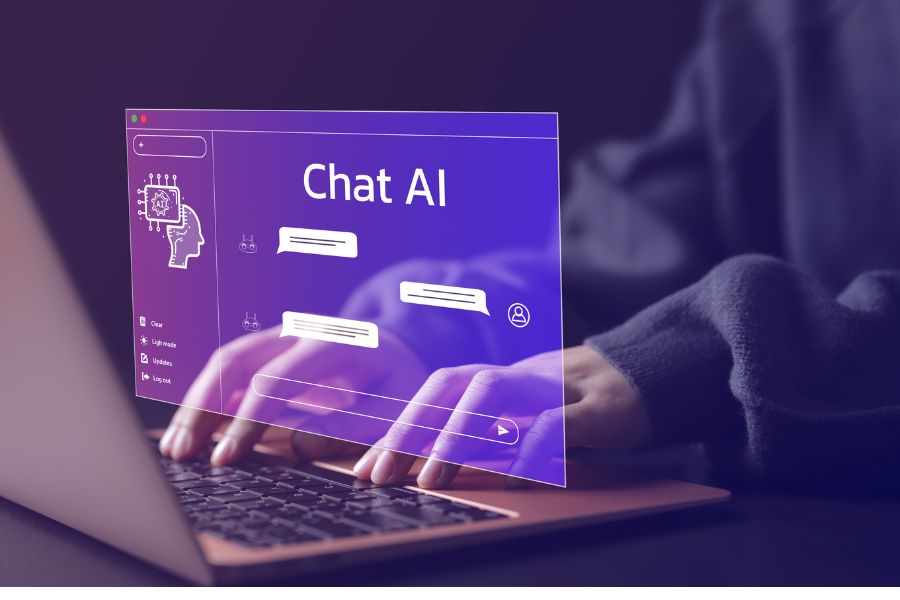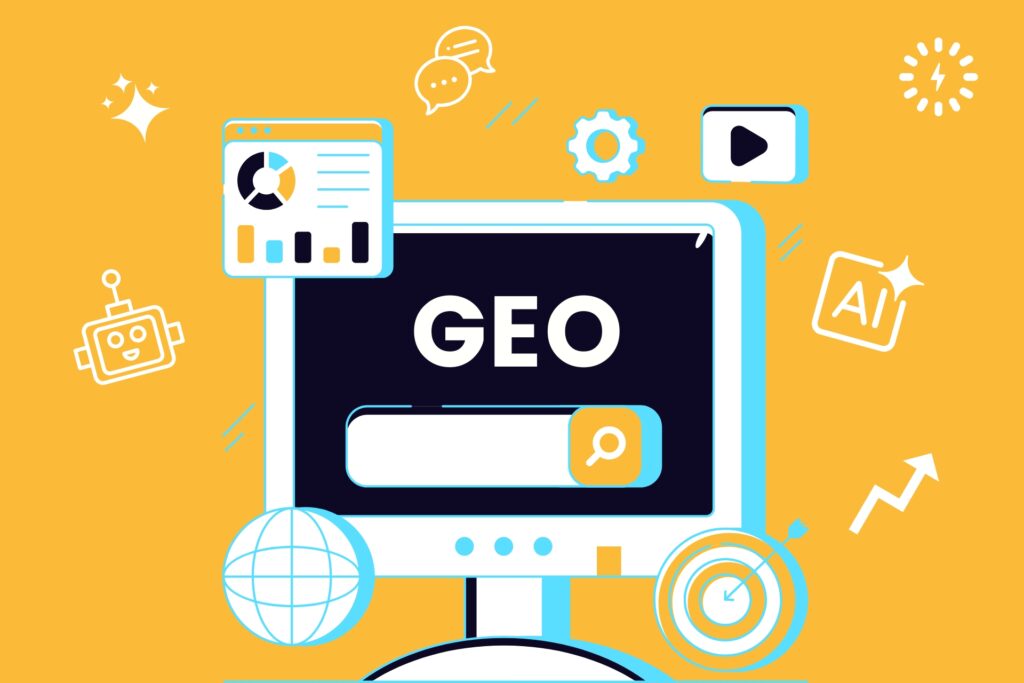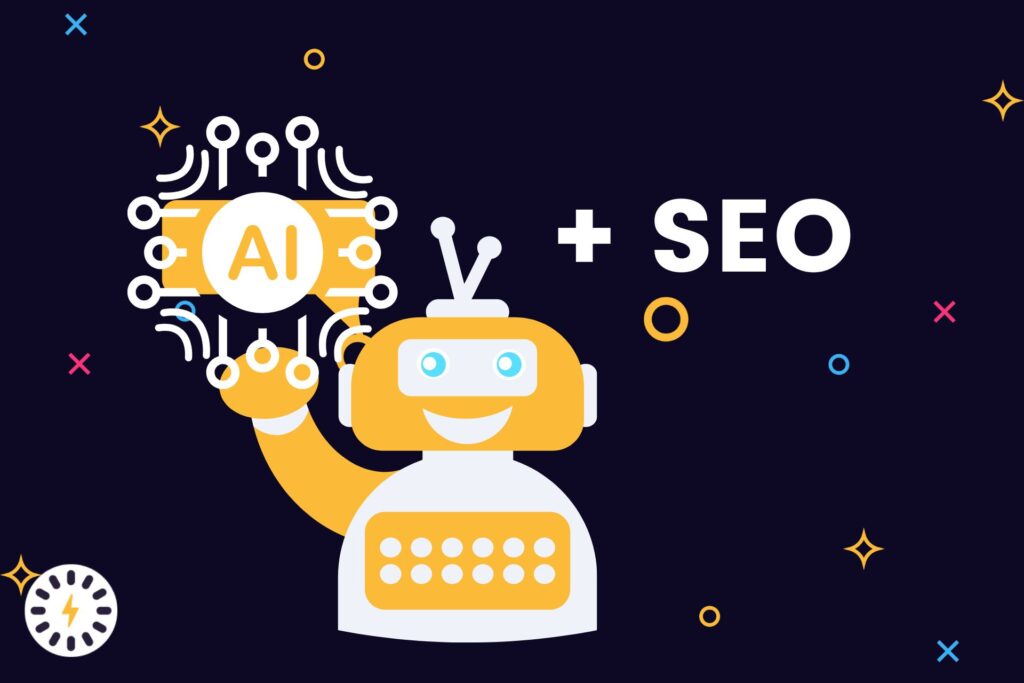In 2024, an e-commerce brand tripled its organic traffic by using a combination of ChatGPT and Bard to optimize its content and track trends in real time. Why? Because AI has gone from being a practical tool to an essential strategic lever for SEO. Today, AI SEO is further revolutionizing approaches by automating optimization and data analysis.
The digital age has transformed the way companies approach their online visibility. The natural search engine optimization (SEO)once based solely on keyword research and manual page optimization, now relies on advanced technologies to stay competitive. Artificial intelligence (AI) is now at the heart of this evolution, offering tools capable of automating, optimizing and enriching every stage of an SEO strategy.
Whether you're a seasoned professional or an SEO novice, you've probably heard about the rise of AI models like DeepSeek, ChatGPT and Bard. These tools don't just simplify time-consuming tasks; they also open up new perspectives for analyzing data, understanding user behavior and anticipating market trends.

But why is AI having such an impact on SEO?
Artificial intelligence is radically transforming SEO. Far from being a mere gadget, it has become an indispensable strategic lever for SEO professionals. Thanks to tools based onGenerative AIcompanies can now optimize their contentrefine their keyword strategies and automate many SEO tasks.
But what are the real benefits of AI SEO and how can you use it to improve your visibility on Google?
Automate keyword research and competitive analysis
The first stage of any SEO strategy is based on a thorough in-depth keyword analysis. Before AI, this work required hours of research on tools such as Google Keyword Planner or SEMrush. Today, theAI speeds up this process considerably by generating relevant keyword lists in seconds.
🛠️ Examples of AI SEO tools for keyword research :
- ChatGPT can provide you with suggestions for long-tail keywords adapted to your theme.
- Semrush Keyword Magic Tool analyzes trends and keyword difficulty in real time.
- Surfing SEO compares your content with that of your competitors to identify high-opportunity keywords.
💡 Tip : Use ChatGPT to refine your search. Prompt example:
"Give me a list of long tail keywords for a digital marketing blog, ranked by search volume."
Automatic content optimization with AI SEO
L'Generative AI allows you to write blog posts, product descriptions and meta tags optimized for search engine optimization.
Recommended tools :
- Jasper AI (https://www.jasper.ai/): Generates articles optimized for SEO keywords.
- Frase.io (https://www.frase.io/) : Analyzes the best Google results and generates a optimized content in just a few clicks.
- Bard Ideal for integrating real-time trends in your content.
- Sedestral is an SEO tool based on autonomous AI agents.
💡 Tip : For engaging metadescriptionsuse Bard. Sample prompt:
"Write a catchy SEO meta description for an article on AI SEO, in 160 characters max."
Improve netlinking and backlink acquisition
The backlinks remain a key factor in the SEO. AI can help to identify inbound link opportunitiesanalyze the quality of reference sites and even generate prospecting emails.
Recommended tools :
- Ahrefs (https://ahrefs.com/) : Analyzes backlink profiles and identifies broken links to exploit.
- Pitchbox (https://pitchbox.com/) : Automates the backlink prospecting from partner sites.
- Link Whisper (https://linkwhisper.com/): Optimize your internal networking thanks to AI.
💡 Tip : Use Ahrefs to identify your competitors' backlinks and contact these sites to offer even more relevant content.
Real-time SEO performance monitoring and analysis
AI makes it possible to monitor your positioning and quickly identify SEO technical issues (non-indexed pages, 404 errors, loading speed).
Recommended tools :
- Google Search Console (https://search.google.com/search-console/) : Analyzes indexing and organic traffic.
- DeepSeek : Performs advanced SEO audits identifying a site's technical flaws.
- SEOClarity (https://www.seoclarity.net/) : Provides a predictive analysis based on AI to anticipate traffic downturns.
💡 Tip Activate automatic alerts on Google Search Console for immediate notification of critical problems.
SEO AI: Deepseek vs. ChatGPT vs. Bard - which is the best AI tool for SEO?
Why compare DeepSeek, ChatGPT and Bard?
Among the many AI tools available, DeepSeek, ChatGPTand Bard stand out for their specific approaches.
- DeepSeek : This open-source model is particularly well-suited to complex technical analyses, ideal for optimizing site structure and performance.
- ChatGPT Focused on the generation of fluid, engaging content, it's designed for those looking to create optimized texts, such as articles or meta-descriptions.
- Bard As a tool integrated into the Google ecosystem, Bard stands out for its ability to exploit real-time data, an asset for surfing emerging trends.
AI, a complement to human strategy
However, it's important to remember that AI is not a magic solution. While these tools can speed up and improve many aspects of SEO, they must be used in conjunction with a human strategy. Creativity, understanding of user expectations and adaptability remain elements that AI cannot totally replace.
In this article, we will explore in detail how to DeepSeek, ChatGPT and Bard are positioning themselves as allies in your SEO efforts. Whether you're looking to optimize your site's structure, improve your content or track trends, find out which of these tools best suits your needs.
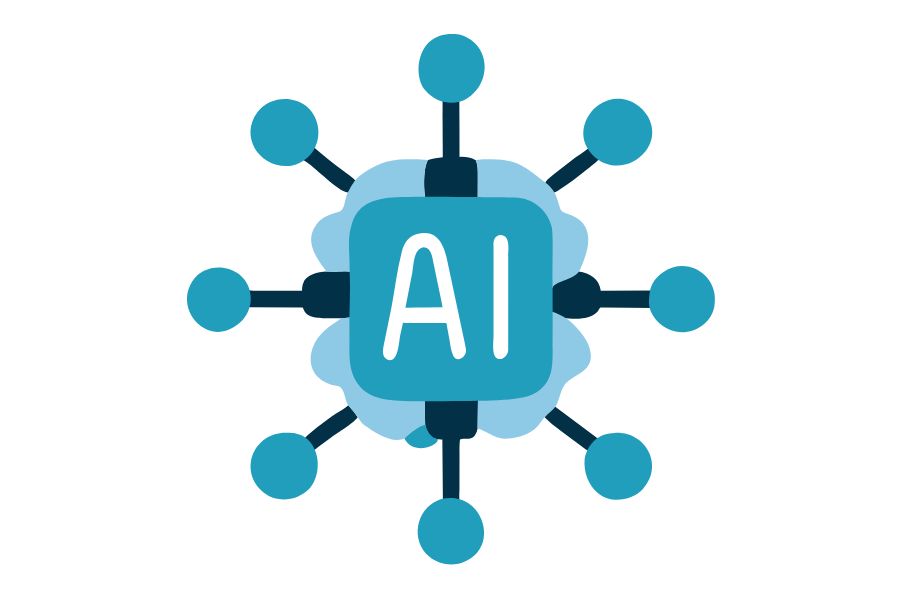
The promise of SEO AI in search engine optimization: concrete gains for your strategy
Artificial intelligence (AI) has revolutionized SEO, making certain tasks faster, more efficient and more accurate. But what does AI promise in concrete terms for SEO professionals? Here's an overview, enriched with practical examples and key statistics.
Automation of repetitive tasks
AI makes it possible to automate processes that used to take hours or even days.
Tools such as SEMrush or Ahrefs can generate comprehensive keyword reports in just a few clicks. These platforms use AI algorithms to analyze millions of search terms and identify those that generate the most traffic in your niche.
According to a study by BrightEdge, 60 % of SEO marketers are already using AI for tasks such as :
- Keyword research.
- Audit report creation.
- Site performance analysis.
💡 Tip: If you're just starting out, start with an SEO audit with SEMrush to identify opportunities for improvement (https://www.semrush.com/).
Real-time data analysis
With AI, it's possible to process millions of data points in a matter of seconds, offering an accurate and up-to-date view of SEO performance.
Surfing SEO is a tool that analyzes competing pages in real time to identify the key elements that position them at the top of search results. It provides precise recommendations on :
- The ideal number of words for an article.
- Secondary keywords to include.
- Keyword density.
BrightEdge also reveals that 70 % of SEO marketers who use AI see an immediate improvement in performance thanks to these real-time analyses.
💡 Tip: Use Surfer SEO (https://surferseo.com/) to adjust your content to the latest SEO trends and search engine expectations.
Improving content relevance with SEO AI
AI makes it possible to better understand users' search intentions, in order to produce content that perfectly meets their expectations.
ChatGPT excels in content creation. You can use it to generate :
- Engaging introductions for your articles.
- Product descriptions optimized for SEO.
- Meta descriptions that increase your click-through rate.
According to HubSpot, companies using AI to produce content are seeing an increase of 25 % of time spent on their site by visitors.
💡 Tip: Test ChatGPT (https://chat.openai.com/) to generate SEO-friendly content, but always adjust the tone and structure to match your brand.
In short, AI doesn't just simplify SEO: it makes it more accurate, faster and more impactful. Whether to automate tasks, analyze data or improve the relevance of your content, tools like SEMrush, Surfer SEO and ChatGPT are indispensable allies in maximizing your results.
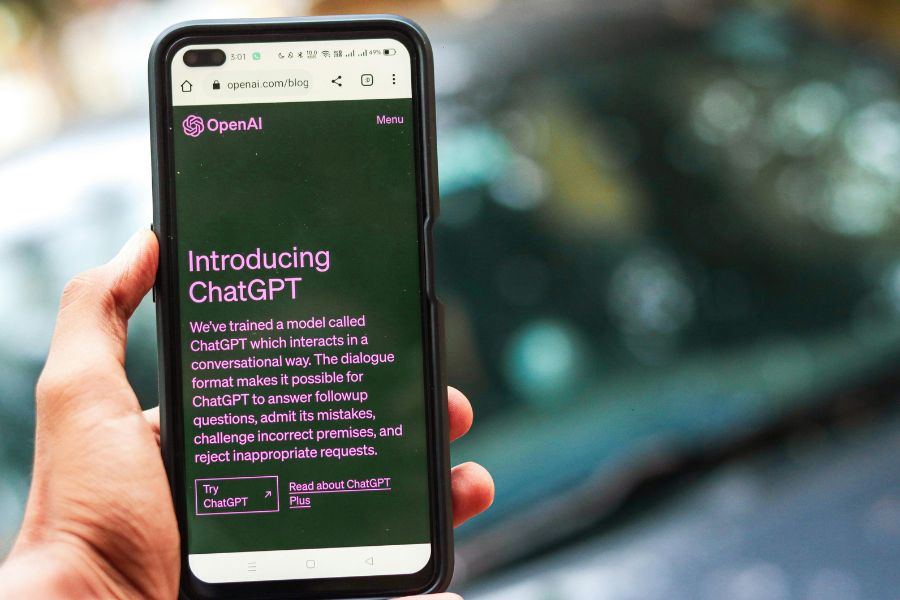
How does AI work in SEO?
Artificial intelligence (AI) is revolutionizing SEO by automating and optimizing key tasks that previously required hours of manual labor. But how does AI actually work in this field? Here's an overview:
Mass data analysis
AI is capable of processing impressive quantities of data in a matter of seconds. For example:
- It analyzes keywords and identifies those that generate traffic.
- It examines user behavior on a site to understand what works.
Example: Google uses its AI to understand search intentions and rank the pages that best respond to them.
Automation of repetitive tasks
Tedious tasks such as keyword research, technical auditing or meta tag optimization are simplified thanks to AI-powered tools.
Example: With platforms like SEMrush or AhrefsYou can generate complete keyword lists or audit hundreds of pages in just a few clicks.
Personalizing the user experience
Thanks to AI, it is possible to personalize the content displayed according to the user's profile, thus increasing the chances of conversion.
Example: An e-commerce site can use AI to recommend products based on the user's preferences and past searches.
In short, AI doesn't replace traditional SEO strategies. It amplifies them by bringing speed, precision and analytical capacity. In our article, discover how to leverage AI to optimize your SEO, with 10 ChatGPT tips to boost your strategy.

What role does AI play in SEO?
AI plays a key role in several aspects of SEO, including:
Intelligent keyword search
Instead of targeting generic keywords, AI can identify high-potential niche expressions. For example:
- ChatGPT helps explore keyword variants by generating suggestions based on search trends.
- AnswerThePublic combines keywords with frequently asked questions from users.
Technical optimization
AI-based tools such as DeepSeek are capable of quickly spotting errors in a site's structure, such as problems with indexing or loading speed.
Example: If your site takes longer than 3 seconds to load, Google may penalize its ranking. AI can identify heavy images or unnecessary scripts that slow down your site.
Predictive analysis
Thanks to its algorithms, AI can predict future trends in your sector. This enables you to adjust your SEO strategy before your competitors do.
In short, AI is a lever that facilitates the implementation of a faster, more effective SEO strategy, while improving the relevance of your content and the performance of your site.

What impact does AI have on SEO?
The impact of AI on SEO is manifold, but it can be summed up in three main points:
Improving content quality
With tools like ChatGPTYou can create optimized, structured and engaging articles in just a few minutes. However, this content must always be supervised and adapted to the tone of your brand.
Increased efficiency
AI makes it possible to do in a few hours what used to take several days. Tasks such as SEO audits, backlink research and technical optimization are now much faster.
Increased competition
As AI becomes increasingly accessible, it's leveling the playing field in SEO. However, to stand out from the crowd, it's essential to combine AI and human strategy to deliver unique added value.
Introduction to 3 generative AI tools
DeepSeek: The AI SEO tool for advanced optimization
DeepSeek is an open-source AI model developed by a Chinese start-up. It stands out for its efficient and cost-effective approach, using a "Mixture-of-Experts" architecture that optimizes the computing resources required to run it. DeepSeek excels at technical tasks and mathematical calculations, offering notable accuracy in these areas.
ChatGPT: The AI SEO tool that's revolutionizing content creation
Developed by OpenAI, ChatGPT is a proprietary AI model recognized for its ability to generate text fluidly and naturally. It is versatile and can be used for a variety of tasks, including content creation, translation and virtual assistance. Thanks to its advanced functionalities, ChatGPT has established itself as a major asset in the field of SEO AIThis is an invaluable aid to content optimization and user experience enhancement.
Bard: the champion of real time
Bard is the AI model developed by Google, designed to provide real-time information based on Google search data. It is particularly useful for identifying current trends and providing up-to-date information, making it a valuable tool for the SEO IA focused on real-time trends.

AI SEO tools comparison: ChatGPT SEO vs. DeepSeek SEO vs. Bard SEO
Content creation
- ChatGPT Ideal for generating SEO-optimized content, including blog posts, product descriptions and meta descriptions. Its ability to produce coherent, engaging text makes it a preferred choice for content creation.
- DeepSeek DeepSeek: Although not as powerful as ChatGPT for content generation, DeepSeek can be used for technical SEO tasks such as data analysis and site structure optimization.
- Bard Thanks to its access to real-time search data, Bard is useful for creating content based on current trends, which can improve the relevance and timeliness of your SEO content.
Technical analysis
- DeepSeek : Excels in technical tasks, offering precise, detailed analyses that can help optimize technical aspects of SEO, such as site structure and performance.
- ChatGPT Although primarily designed for content generation, ChatGPT can also provide suggestions for technical optimization, but with less depth than DeepSeek.
- Bard Google: Provides real-time information that can be useful for technical analysis, including current search trends and Google algorithm updates.
Cost and accessibility
- DeepSeek : As an open-source model, DeepSeek offers a cost advantage, being accessible without license fees.
- ChatGPT As a proprietary model, ChatGPT generally requires a paid license, which can represent a significant investment for some companies.
- Bard Bard is integrated into Google's services, making it accessible to users of Google platforms, but its use may be subject to certain restrictions and dependencies on the Google ecosystem.
Detailed comparison of SEO AI tools: DeepSeek, ChatGPT and Bard
Here is an in-depth comparison table to help you identify the best tool for your SEO needs:
| Criteria | DeepSeek | ChatGPT | Bard |
|---|---|---|---|
| Technical analysis | ★★★★★ - Ideal for detecting site structure errors, indexing problems and technical performance, thanks to algorithms specialized in complex calculations. | ★★★☆☆ - Offers basic technical suggestions like optimizing tags or improving loading speed, but with less precision. | ★★★★☆ - Provides up-to-date data from the Google ecosystem, including recent errors and algorithm updates. |
| Content creation | ★★☆☆☆ - Suitable for simple analysis or description, but lacks fluidity to produce optimized articles or text. | ★★★★★ - Excellent for writing blog posts, meta descriptions, and engaging content based on strategic keywords. | ★★★★☆ - Very useful for writing content focused on current trends thanks to access to Google's real-time data. |
| Real-time data | ★★☆☆☆ - Limited in updating and unable to handle real-time trends. | ★★★☆☆ - Can provide general trend answers, but does not rely on live dynamic data. | ★★★★★ - Direct access to Google search trends, for precise, up-to-date analysis. |
| Ease of use | ★★★★☆ - Requires technical skills to maximize its potential, but remains accessible thanks to its open-source structure. | ★★★★★ - Intuitive, user-friendly interface, ideal even for novices. | ★★★★☆ - Integrated with Google services, but requires some adaptation for users unfamiliar with these tools. |
| Cost | Free (open-source), making it an affordable option for everyone. | Pay-as-you-go - Subscription or consumption model, with rates that vary according to usage. | Included in the Google ecosystem, but dependent on access limitations of Google services. |
| Best use | ● Advanced technical analysis (technical SEO). ● Performance optimization for complex sites (e-commerce, heavy websites). |
● Creation of optimized and engaging content. ● Response to blog, product sheet or landing page copywriting needs. |
● Real-time trend monitoring. ● Ideal for sectors requiring constant updates (news, seasonal e-commerce). |
SEO and artificial intelligence: detailed criteria analysis
-
Technical analysis
DeepSeek is the undisputed leader for technical SEO audits, thanks to its advanced features such as the detection of slow pages, 404 errors or unnecessary redirects. ChatGPT, on the other hand, is more generalist and less specialized in these aspects. Bard, with its up-to-date data, can provide interesting insights, but is no match for DeepSeek for purely technical tasks. -
Content creation
ChatGPT outperforms its competitors thanks to its ability to generate fluid, optimized content. Bard comes close thanks to its real-time data, but DeepSeek remains limited to technical uses and is not designed to produce long or engaging texts. -
Real-time data
Bard clearly stands out in this field thanks to its integration with Google. If your SEO strategy depends on dynamic trends, Bard is the tool for you. DeepSeek, while effective in technical analysis, is outdated in this category. -
Ease of use
ChatGPT stands out for its accessibility: no technical knowledge is required to use it effectively. DeepSeek is more complex and aimed at SEO experts. Bard, although integrated with Google, requires adaptation for novice users. -
Cost
DeepSeek, being open-source, is the ideal choice for those looking for a free solution. ChatGPT, while effective, can represent a substantial investment depending on usage. Bard, included in Google services, is more affordable for those already using this ecosystem. -
Best use by type of site
- DeepSeek : Perfect for large companies or e-commerce sites with advanced technical requirements.
- ChatGPT Ideal for SMEs, bloggers or companies looking to produce SEO-friendly content quickly.
- Bard Suitable for trend-setting agencies or companies in sectors such as news or fashion.
Depending on your specific SEO and AI needs, the choice between DeepSeek, ChatGPT and Bard may vary:
- If your priority is a advanced technical analysisDeepSeek is the tool you need.
- For optimized, engaging contentChatGPT remains the best option.
- Finally, for precise monitoring of real-time trendsBard is unbeatable.
By combining these tools, you can build a complete, high-performance SEO strategy tailored to all the challenges of modern SEO.
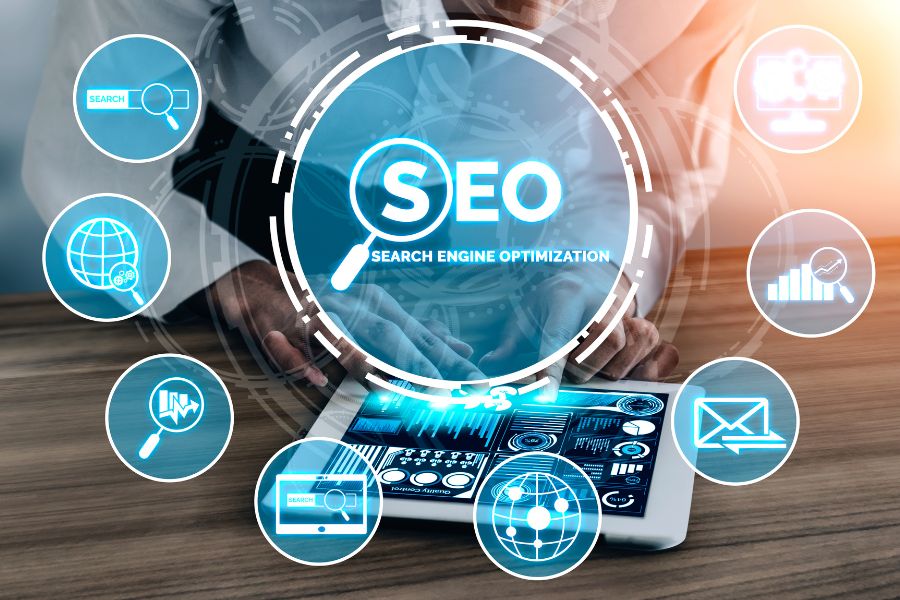
AI, an essential lever for tomorrow's SEO
Artificial intelligence is redefining the rules of SEO. What was once tedious manual work - keyword research, content writing, technical optimization - is now automated, optimized and accelerated thanks to tools like DeepSeek, ChatGPT and Bard.
👉 But AI does not replace the human. It is a strategic lever which amplifies the efforts of SEO experts, enabling them to focus on what really matters: value creation, user experience and adaptation to market trends.
Which AI tool should you choose to boost your SEO?
- Are you a technical SEO expert? DeepSeek is your best ally for auditing, structuring and optimizing your sites.
- Looking to produce engaging, optimized content? ChatGPT excels in copywriting and SEO optimization.
- Want to exploit real-time trends? Bard, with its access to Google data, gives you a competitive edge on market news and developments.
AI in SEO: a winning bet, but with a strategic approach
✔ Automate without losing quality : AI saves you time, but every piece of content needs to be reviewed and adapted to reflect your brand and meet user expectations.
✔ Use data in real time AI enables you to anticipate trends and position your content ahead of the competition.
✔ Combine the strengths of different tools No tool is perfect on its own, but by combining DeepSeek for technical analysis, ChatGPT for copywriting and Bard for monitoring, you can maximize your SEO impact.
Tomorrow's SEO is happening now. By adopting AI intelligently, you'll be one step ahead of your competitors.

